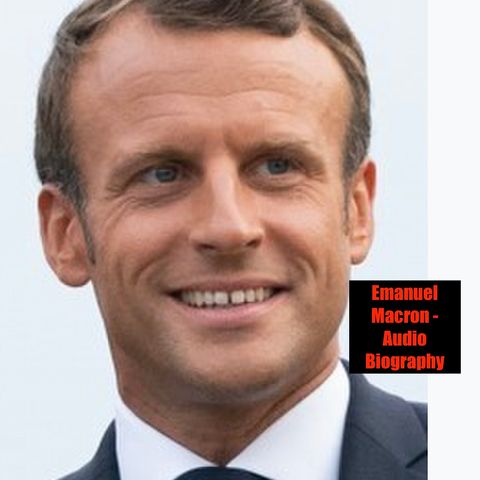11 GIU 2024 · Emmanuel Jean-Michel Frédéric Macron was born on December 21, 1977, in Amiens, France. Raised in an intellectually stimulating environment, Macron's mother, Françoise Macron-Noguès, was a physician, and his father, Jean-Michel Macron, was a professor of neurology. Macron attended the prestigious Lycée Henri-IV in Paris, followed by the elite École nationale d'administration (ENA), known for producing many French political leaders. Macron began his professional journey in the French civil service as an Inspector of Finances. His analytical skills and innovative thinking quickly caught the attention of his superiors. In 2008, he joined the investment bank Rothschild & Cie, where he became known for his deal-making prowess, notably negotiating Nestlé's acquisition of Pfizer's baby food division. Macron's political career began with his appointment as Deputy Secretary-General to President François Hollande in 2012. In 2014, he was appointed Minister of Economy, Industry, and Digital Affairs, where he championed pro-business reforms, including the controversial "Macron Law," which aimed to deregulate various sectors of the French economy. In 2016, Macron resigned from his ministerial position to focus on his presidential campaign. He founded the centrist political movement La République En Marche! (LREM), positioning it as a progressive alternative to traditional French political parties. His campaign emphasized economic reform, social progress, and European integration, garnering widespread support. Macron was elected President of France on May 7, 2017, defeating far-right candidate Marine Le Pen. At 39, he became the youngest president in French history. His presidency has been marked by ambitious reforms, including changes to labor laws, tax policies, and the pension system. Macron has been a vocal advocate for a stronger and more integrated European Union, often positioning himself as a leader in EU affairs. Macron's domestic agenda has focused on revitalizing the French economy through liberal economic reforms. His government has implemented significant labor market reforms aimed at increasing flexibility for employers and reducing unemployment. These reforms, while controversial, are designed to make the French economy more competitive globally. Macron has also pushed for tax reforms, including reductions in wealth taxes and corporate taxes, aiming to attract investment and stimulate economic growth. Additionally, his administration has worked on overhauling the French pension system to ensure its long-term sustainability. On the international stage, Macron has positioned France as a key player in global affairs. He has been a strong proponent of the Paris Agreement on climate change and has worked to maintain France's leadership in environmental sustainability. Macron's diplomatic efforts have also included maintaining strong transatlantic relations and advocating for a united European response to global challenges. Macron's foreign policy has been characterized by efforts to strengthen the European Union. He has called for deeper integration among EU member states, including proposals for a common eurozone budget and more coordinated defense policies. Macron's vision for Europe includes a more autonomous and cohesive bloc capable of addressing economic, security, and environmental challenges collectively. Macron's presidency has not been without challenges and controversies. The "Yellow Vests" movement, which began in late 2018, saw widespread protests against his economic policies, which were perceived by some as favoring the wealthy. These protests highlighted the deep social and economic divisions within France, forcing Macron to engage in a national dialogue and make policy adjustments to address public discontent. The COVID-19 pandemic presented another significant challenge, requiring Macron to navigate the health crisis while managing its economic fallout. His government's response included implementing strict lockdown measures, rolling out a nationwide vaccination campaign, and introducing economic support packages to mitigate the impact on businesses and workers. In 2022, Macron successfully secured a second term in office, once again defeating Marine Le Pen in a closely watched election. His re-election campaign emphasized continuity in his reform agenda, with a focus on achieving greater economic stability, enhancing social cohesion, and reinforcing France's role on the global stage. Looking ahead, Macron's vision for France includes continued efforts to modernize the economy, address climate change, and promote social justice. He aims to build a more inclusive society, where economic opportunities are accessible to all citizens. Macron's commitment to European integration remains a cornerstone of his presidency, as he seeks to strengthen the EU's capacity to act as a unified and influential global player. Emmanuel Macron's journey from a young academic prodigy to the President of France is a testament to his intellectual rigor, political acumen, and dedication to public service. His tenure has been marked by significant reforms and a clear vision for France's future, both domestically and internationally. As he continues to navigate the complexities of modern governance, Macron's impact on France and the broader global landscape remains profound.


